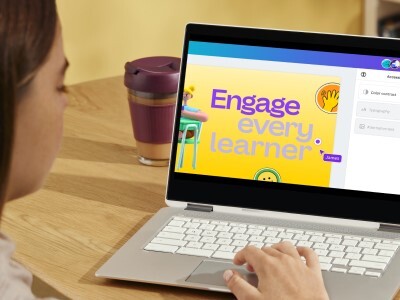Technology Tools
Lessons from a Year of EdTech Innovation
Topics

Educators often take advantage of educational technologies as they make the shifts in instruction, teacher roles, and learning experiences that next gen learning requires. Technology should not lead the design of learning, but when educators use it to personalize and enrich learning, it has the potential to accelerate mastery of critical content and skills by all students.
The team behind Gooru, a free search for learning, share lessons learned after their NGLC implementation.
Editor’s Note: Gooru (www.goorulearning.org) is a free search engine for learning that allows teachers and students to search for, share, study and organize learning resources. Gooru was among 19 organizations that received grant funding as part of NGLC’s “Building Blocks for College Readiness” funding wave. In this guest post, they share “lessons learned” from their time as an NGLC grantee.
2012 was an exciting second year for the Gooru team. We made the leap from Alpha product to a more polished Beta product in June; announced valuable partnerships with schools, including the Chicago Public Schools and Denver School of Science and Technology, as well as with established and new companies such as Pearson and Silverback Learning Solutions; introduced several key new features and subjects to Gooru; and released our very first iPad app just in time for the holidays. Gooru now covers all 5th-12th grade math, science, history and economics topics, with more grades and subjects coming soon. 175,000 students and teachers are learning and teaching with Gooru and, with the recent launch of our iPad app, we are able to reach thousands of mobile users as well.
Working with schools in the Bay Area has been especially enlightening, as our product, programs and content decisions have greatly benefitted from their feedback. We have learned a great deal from developing academic collections with teachers, talking to our core users, sitting in classrooms, and tutoring students with Gooru in after-school programs. Working in a very distributed education system poses its challenges, but ultimately we feel that the grassroots efforts of many can help teachers and students succeed both in and out of the classroom environment. Here are a few of our lessons from the trenches:
- Learning is not always linear. Online learning can help students find a spark of interest and target their needs. We discovered that, for the most part, teachers and students have one of two motives when they are searching for learning materials online: 1) Locating a very particular resource to address a specific need, or 2) Uncovering a new resource by serendipitously stumbling upon it. The first iterations of Gooru Collections did a good job of uncovering unanticipated interests, but we found that to help students and teachers target specific resources, we needed a "find one" resource search that allowed users to save, share, and collect. The thrill of uncovering specific resources helped increase student engagement, providing a "non-linear" learning experience.
- Assessment matters. Teachers need to see a closed-loop learning solution so that progress is not lost and improvements are tracked. Searching, studying and organizing are not enough. Psychologists have shared that formative assessments are vitally self-motivating, and cognitive scientists have confirmed that students learn faster and more deeply if they test themselves. Thus, there needs to be a closed loop that circulates assessment results, learning resource suggestions and learning opportunities back. We spent the second half of the Fall semester prototyping and building an online quiz environment to validate this closed-loop solution, using the Common Core as a touchpoint.
- Know your tools. Today’s students are fully immersed in digital, mobile and social media, and they increasingly rely upon these sources for communication, entertainment and information. While students have embraced a variety of devices, the mobile phone has reigned as their tool of choice based on ease of use and affordability. In order to reach and engage students effectively, the education sector must adapt to students’ increasing preference for mobile media and develop learning resources and tools that are optimized on such devices.
- Every learner is different. Everyone learns in a slightly different way. Students need individualized resource suggestions to address their targeted needs and preferences. There's no excuse now not to have an adaptive learning environment. This goes for teachers as well—they should have an online space that tests and pushes their PD. All students and teachers should have a place where they can organize their own resources and curate the things they love. Personalization is key.
- You can't push on a rope. We found out the hard way that you cannot force teachers, students, or anyone else to do something that they do not want to do. They will not use a resource if they do not want to use it, enjoy using it, or have the capability to use it. Broken computers, insufficient bandwidth, and intrusive net-nannies prevent teachers and students from accessing free online learning resources. That's the way it is today, but that's not the way it will always be. If users and students demand change, it will happen. If there are compelling, free tools online for them to use (reducing school budget requirements in the long haul), then policy and infrastructure can change.
We hope that by sharing these lessons with other education pioneers, we can collectively improve education for students around the world. Please feel free to reach out to us to learn more about our process. We look forward to continued collaboration with other NGLC grantees and learning from your experiences over this past year.
About Gooru
Gooru is a free search engine for learning. Teachers and students can use Gooru to search for rich collections of multimedia resources, digital textbooks, videos, games and quizzes created by educators in the Gooru community. Gooru’s extensive library of standards-aligned collections covers all 5th-12th grade math, science, history and economics topics, ensuring that every student will find a relevant, interesting collection to learn from. And now, our Gooru Collections iPad app makes on-the-go study easy and beautiful—download the app for free from the App Store!
Gooru is free (of cost and ads) and developed by a 501(c)(3) non-profit organization whose mission is to honor the human right to education. To get started, watch this short demo of Gooru. You can download additional training materials, like our fact sheet or interactive tutorials, here.
Learn more about Gooru on its grantee page.




